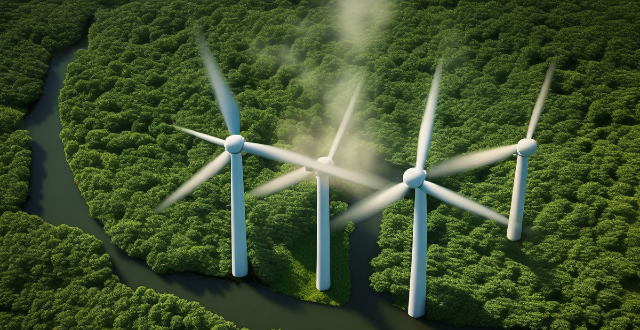Renewable energy sources play a crucial role in climate change adaptation by reducing greenhouse gas emissions, promoting sustainable development, and enhancing energy security. By transitioning from fossil fuels to renewable energy sources, we can significantly reduce carbon dioxide emissions, which are a major contributor to global warming and climate change. Renewable energy sources are sustainable because they rely on natural processes that replenish themselves over time, unlike non-renewable resources like coal and oil. By using renewable energy sources, we can promote sustainable development that meets the needs of the present without compromising the ability of future generations to meet their own needs. Renewable energy sources provide a diversified energy mix that reduces dependence on imported fossil fuels, enhancing energy security for countries around the world.

The Role of Renewable Energy Sources in Climate Change Adaptation
Renewable energy sources play a crucial role in climate change adaptation by reducing greenhouse gas emissions, promoting sustainable development, and enhancing energy security. Here are some key points:
Reducing Greenhouse Gas Emissions
- Renewable energy sources such as solar, wind, hydro, and geothermal power generate electricity without emitting harmful pollutants or greenhouse gases into the atmosphere.
- By transitioning from fossil fuels to renewable energy sources, we can significantly reduce carbon dioxide emissions, which are a major contributor to global warming and climate change.
- This reduction in greenhouse gas emissions helps to mitigate the impacts of climate change, such as rising temperatures, sea level rise, and extreme weather events.
Promoting Sustainable Development
- Renewable energy sources are sustainable because they rely on natural processes that replenish themselves over time, unlike non-renewable resources like coal and oil.
- By using renewable energy sources, we can promote sustainable development that meets the needs of the present without compromising the ability of future generations to meet their own needs.
- This approach helps to ensure that economic growth and social development are achieved in an environmentally responsible manner, reducing the negative impacts of climate change on human societies and ecosystems.
Enhancing Energy Security
- Renewable energy sources provide a diversified energy mix that reduces dependence on imported fossil fuels, enhancing energy security for countries around the world.
- By increasing the use of renewable energy sources, countries can become more self-sufficient in meeting their energy needs, reducing vulnerability to price fluctuations and supply disruptions in global markets.
- This increased energy security helps to protect against the potential risks associated with climate change, such as extreme weather events that can disrupt energy supplies and infrastructure.
In conclusion, renewable energy sources play a vital role in climate change adaptation by reducing greenhouse gas emissions, promoting sustainable development, and enhancing energy security. By transitioning to renewable energy sources, we can help mitigate the impacts of climate change and build a more resilient and sustainable future for all.